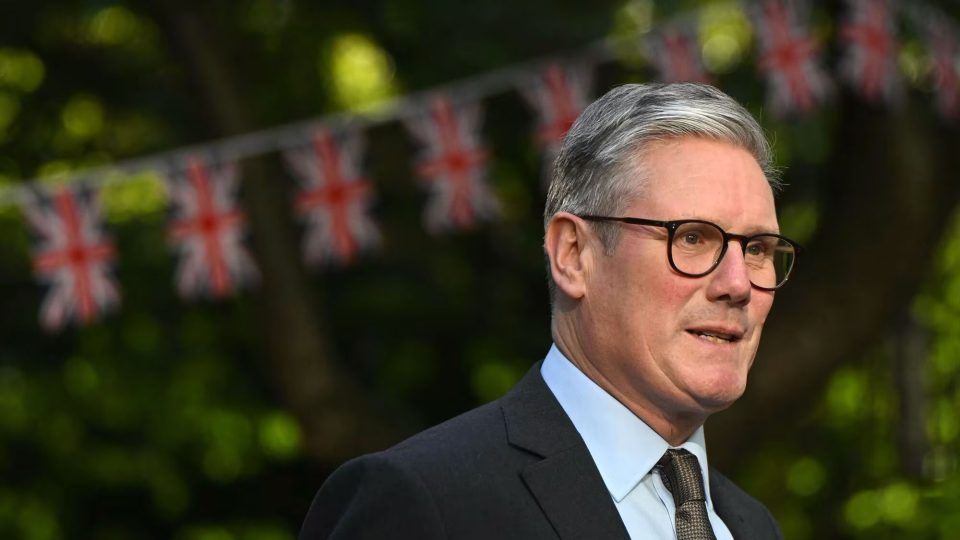Keir Starmer’s recent Labour Party conference in Liverpool unfolded under clouds—both literal and metaphorical—following a historic election win. Just three months after his triumph, the rainy backdrop served as a reflection of the mood within his party.
The gathering, intended as a celebration, was overshadowed by Starmer’s struggles to maintain momentum as he addressed a damp audience in the conference center. The Prime Minister highlighted July’s significant electoral victory in his keynote speech, stating, “People said we couldn’t do it, but we did.” However, a series of negative headlines regarding ministers, internal conflicts, and tough policy decisions served to dampen spirits further.
Starmer’s leadership seems to be waning in popularity, with recent opinion polls indicating a significant drop in approval ratings as the Labour Party faces mounting criticism over its handling of finances and the perceptions of cronyism. The announcement of a cut to the Winter Fuel Payment for retirees, paired with revelations about Starmer accepting substantial donations and gifts, has further complicated the party’s narrative. Labour MP Rachael Maskell voiced her concern, stating, “It’s indefensible. Politicians should pay their own way.”
The timing of these controversies could not have been worse, coinciding awkwardly with the austerity measures the government is implementing in response to the ongoing cost-of-living crisis.
Starmer’s Message Under Fire
Starmer attempted to instill a sense of hope in his recent address, promising that there was “light at the end of the tunnel,” but the realities of governing have set in, leading to skepticism within the party. As Labour struggles to maintain its initial vision of change, some MPs have expressed frustration with the lack of excitement surrounding Party initiatives.
After the first day of the conference, Starmer’s speech was crucial in attempting to regain focus and restore a sense of integrity, but the challenges he faces are daunting. He must improve the nation’s economic situation and public services with a fragile support base and dwindling goodwill.
The conference did see some encouraging news, with the Organisation for Economic Co-operation and Development forecasting faster economic growth for the UK than the eurozone this year. Still, tangible results are necessary for a public that is growing increasingly impatient.
As Chancellor Rachel Reeves prepares to outline the government’s budget next month, pressure is mounting for significant improvements to public services, particularly the National Health Service, which has been criticized for being in “critical condition.”
The Call for Action
Whether Starmer can revive enthusiasm and support remains to be seen. As the week drew to a close, some Labour members were already contemplating their long-term political strategy. “It’s easy to say it will take a decade,” one MP noted, “but where are the immediate results?”
While Starmer believes in the need for patience and a long-term vision, the stakes are high for a party that swept into power with promises of change but now faces the harsh reality of governance and public expectations.
Credit: CNN News




